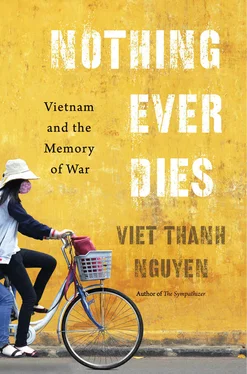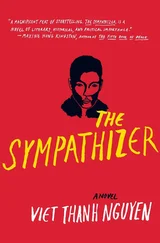Suddenly the person who professionally judges becomes aware that a grade brings with it unknown prejudices of personal and aesthetic kinds on the part of the critic. But writers and artists always render judgment, ruthlessly, on their own work as well as on the work of others, if not always in public. How else does one improve one’s art if one cannot judge in the most basic ways, especially in comparison to what one wishes to achieve in one’s own creation? What is crucial to admit is that this aesthetic judgment is an expression of identity, deeply subjective and perhaps flawed, yet always necessary. Recognizing this, some critics shy away from judging a work’s beauty in favor of considering how a work functions in certain contexts. Context is especially important when it comes to looking at minorities, women, the poor, the working class, the colonized, anyone whose art has often been deemed as inferior by authority figures, who in the West are usually white and usually men, but also sometimes women. These authority figures favor the stories of soldiers and men over those who seem only to be war’s bystanders. Because they are powerful, these critics can deny how their identities shape their judgments, even as they insist that the less powerful usually do not transcend their identities. These critics practice the unacknowledged identity politics of their profession when their judgments are delivered as objective, rather than being what they are: subjective expressions of institutionalized power, with the critic being a part of an entire system of art- and taste-making that begins in the schools, extends into the professionalized worlds of art, and incorporates both artist and critic.
Those critics who do not admit to their biases, to the way their tastes have been shaped by their worlds and their aesthetic industries, are being unethical. A stinging rebuke to unethical criticism is given by, not surprisingly, a writer, Nguyen Huy Thiep, the foremost short story writer in Vietnam of the 1980s and 1990s. His short story, “Cun,” from his classic collection The General Retires , features a writer and his good friend, the literary critic K. The writer tells us that K. “demands high standards in what he calls the character of a person. Hard work, sacrifice, dedication, sincerity, and, of course, good grammar are the qualities he requires”; “he understands our literary debates well (which I must confess I don’t).” 17K. tells the writer that K.’s father, the Cun of the story’s title, only wanted to be a human being throughout his short life, but failed. Intrigued by this cryptic fragment, the writer weaves a grotesque story, set during the Japanese-induced famine of 1944 that killed about one million people in the north, a time, my mother tells me, when she found people dead of starvation on her childhood doorstep. This story concerns the child beggar Cun, cursed by a “hydrocephalic head and soft, seemingly boneless limbs.” 18He drags himself on the ground everywhere, but his beautiful face makes him a compelling beggar. Despite his body’s inhuman ugliness, Cun is the only human person on his street of able-bodied people, all of whom behave inhumanely. Then Cun becomes wealthy through a windfall inheritance. A beautiful but destitute neighbor persuades Cun to give her his wealth in exchange for one sexual encounter, which is the only happy moment of his life. An illness kills Cun, but he lives just long enough to see her birth his child. This child is the literary critic K., who is, of course, appalled by the writer’s story, which he considers a fabrication. To prove what really happened, the critic shows a photo of his father, “a big fat man wearing a black silk shirt with a starched collar. He also wore a neatly trimmed moustache and was smiling at me.” 19
The critic is the authority figure, the comfortable representative of the literary establishment, which is also, in Vietnam, part of the political establishment. His judgments on literature cannot be separated from his identity as a functionary of a regime that views literature as potentially dangerous to its own authority. More than that, he is a bad critic because he cannot bear to be confronted with criticism, especially criticism that questions his identity. In response to the story that mocks his heritage, the critic naively turns to a photograph to show that his father was in fact human, not inhuman, though this contradicts what he himself suggested previously. 20But as Papageorge’s photos show, realistic photographs of human beings doing banal acts can just as readily be evidence of their inhumanity, their indifference to the things done in their name. The critic’s reaction is not just a breakdown of ethical standards but the fullest expression of his hypocritical aesthetic of propriety. He is so focused on his father’s humanity, and hence his own, that he cannot even discuss the child beggar, the main character of the story. The child beggar might be an embodiment of the dehumanized poor, or perhaps a reference to the inhuman horrors that Agent Orange created, or more simply one person whose tragedy is overlooked by the humans who see him and yet do not see him, including the critic.
It is fairly easy to imagine Western critics in a parallel vein, seeing through their own supposedly objective, humanistic standards and yet subjectively blind to the inhumanity in front of them. A vertically integrated system of aesthetic education and reward reinforces their standards, beginning in the earliest years of schooling and ending at the rarefied heights of universities, academies, organs of criticism, and prize-granting bodies. In America, this world typically focuses on the individualist, consumerist, and alienated values and feelings of a capitalist society. Capitalism privileges the individual author or auteur who can wield her or his art in ways considered refined and legitimate by the tastemakers, those people who, like their distant cousin K., rarely question how their identities as critics and their sense of taste, beauty, and goodness are intertwined with the values and ideology of their dominant class. They do not see that their aesthetic values, which they understand to be evidence of their humanity, are tainted and shaped by the inhumanity of the capitalist system and the war machine within which they live and whose profits and costs they take for granted.
As critic Pankaj Mishra says, Westerners, including Western writers, routinely expect non-Western writers to decry the oppressive regimes under which they suffer. Not to protest seems like moral failure to Western writers. These same writers often do not work up the same aesthetic outrage toward their own society’s crimes via a “selective humanism — blind to the everyday violence of one’s own side, and denying full humanity to its victims.” 21These Western writers lack the imagination to see how their drab stories of unhappiness, divorce, cancer, etc. — the very stuff of award-winning realism and the bad outcomes of white privilege over here —might be connected to, and made possible by, their society’s wars and capitalist exploitation over there . Culture, as Edward Said explains, is inseparable from imperialism, which can be read as humanity being inseparable from inhumanity. 22This selective humanism is, of course, not purely Western but universal, as Mishra is careful to note: “most novelists, in the West as well as the non-West, avoid direct confrontation with powerful institutions and individuals, especially those that not only promise fame and glory to writers but also, crucially, make it possible for them to stay at home and write.” 23
The same charge of selective humanism and complicity with power can be laid against most critics. This is part of the brilliance of Thiep’s story, his insinuation that the punctilious critic’s heritage may be inhuman, which is utterly shocking to the critic if not to his Western readers. As outsiders to communism, Westerners can easily see its hypocrisies and blind spots, the inhumanity at the heart of its ideology. The rebellious writer in Vietnam faces a system of power, prestige, and taste that defines what is acceptable and what is human or inhuman. The Westerner demands a heroic response! But what is obvious about Western values, when seen from the outside, is that they too reinforce propriety. This propriety prefers to deny the inhuman, the colonialism, imperialism, domination, warfare, and savagery found in the heart of whiteness. When this inhumanity is acknowledged, its connection to, and contamination of, Western humanity is often suppressed or disavowed by artists, readers, and critics who are blind to their own hypocrisies and contradictions, their participation in inhumanity, their own lack of heroism when confronted with the lures of institutional reward.
Читать дальше












